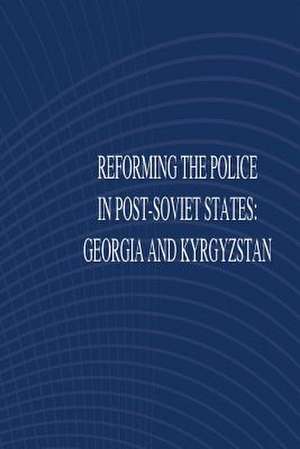Reforming the Police in Post-Soviet States
Autor United States Army War Collegeen Limba Engleză Paperback
Preț: 92.96 lei
Nou
Puncte Express: 139
Preț estimativ în valută:
17.79€ • 19.32$ • 14.94£
17.79€ • 19.32$ • 14.94£
Carte disponibilă
Livrare economică 01-15 aprilie
Preluare comenzi: 021 569.72.76
Specificații
ISBN-13: 9781502474711
ISBN-10: 1502474719
Pagini: 62
Dimensiuni: 152 x 229 x 3 mm
Greutate: 0.1 kg
Editura: CREATESPACE
ISBN-10: 1502474719
Pagini: 62
Dimensiuni: 152 x 229 x 3 mm
Greutate: 0.1 kg
Editura: CREATESPACE
